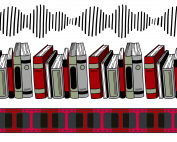WE BELIEVE IN A JUST & EQUITABLE WORLD
GoPhilanthropic Foundation collaborates to expand the power and potential that resides at the grassroots, where under-resourced communities are working to gain equal access to education, health, human rights, and opportunities that we are all entitled to.
The positive shifts that are required to solve our greatest global imbalances will require us to listen more carefully, trust more deeply, and commit more fully to becoming a better humanity — together.
Over 0
Partner Programs
0
Countries
0Million
Raised
AREAS OF FOCUS
We have raised nearly $4 million in the past 10 years for 30+ community-based programs providing access to:
Insight to GoPhil’s Key Sectors: Why Education?
As you might have learned from our previous GoPhil’s key sectors blog post on health
Guatemala Learning Network: Learning and Growing as a Community!
At GoPhil, our Learning Networks are an opportunity for our leaders from our partner
Insight to GoPhil’s Key Sectors: Why Health Care?
GoPhilanthropic focuses on 3 key sectors of development: health, human rights,
Our 2022 Summer Learning List!
Ready for some great recommendations? A few weeks ago we began reaching out to




